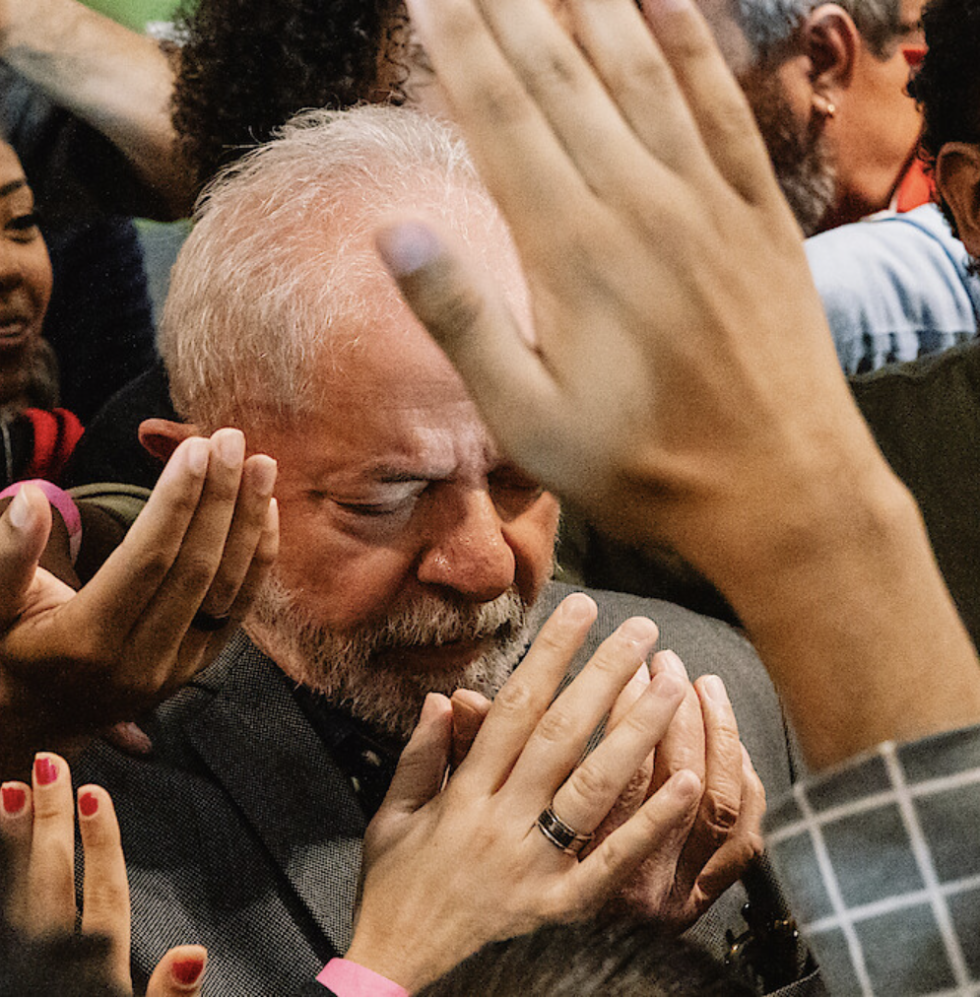
Brazilian filmmaker Petra Costa has a way of making documentaries about Brazil that speak directly and crucially to American politics.
Her 2019 Oscar-nominated film The Edge of Democracy illustrated how critical the peaceful transfer of power was to any democratic form of government. That norm was violated in Brazil after the election of Dilma Rousseff as president in 2011, and then sure enough in 2020, not long after her film came out, Donald Trump became the first U.S. president to refuse to peacefully transfer power to his successor, Joe Biden.
Costa’s new film, Apocalypse in the Tropics, examines the rise of Christian Nationalism in Brazil, which is impacting the country in profound and disturbing ways. The movement has been seeded and inspired by Christian Nationalists in the U.S., who are gaining influence here and have become a key component of Pres. Trump’s base. It was Christian Nationalists who played a leading role in the insurrection at the Capitol on January 6.
Apocalypse in the Tropics screens at Sheffield DocFest in the U.K. on Saturday, its latest festival stop after a world premiere last September at Venice, and appearances at Telluride, the Camden International Film Festival in Maine, CPH:DOX in Copenhagen, the New York Film Festival and more. The documentary premieres on Netflix on July 14.

(L-R) ‘The Edge of Democracy’ producer Shane Boris, producer Joanna Natasegara, director Petra Costa, and producer Tiago Pavan attend the 92nd Annual Academy Awards on February 9, 2020
Amy Sussman/Getty Images
“The genesis of this investigation on the rise of religious fundamentalism in Brazil was while I was filming The Edge of Democracy,” Costa explains. “I arrived in Congress trying to understand what was happening to Brazilian democracy, and in the middle of the impeachment we had of our first female president, Dilma Rousseff. When I arrived in Congress, instead of finding congressmen discussing the issue at hand, I found them blessing the seat of Congress and speaking in tongues led by a pastor and congressman who was there. And so I asked him what was going to happen to Brazilian democracy, and he said that basically in a government of the Godly, that God would decide; it was all in God’s hands. And he asked me to accept Jesus and handed me a Bible.”
Costa adds, “That was really a moment of awakening of the tectonic plates that were shaping Brazilian politics, which I was not aware of.”
One tradition of Christianity emphasizes care for the poor and downtrodden, and “the words of Christ like ‘love thy neighbor as thyself,’” as Costa notes. That’s consistent with a more liberal political viewpoint. But Christian Nationalism – an offshoot of evangelical Christianity, puts the focus on something radically different. As the filmmaker explains, it’s preoccupied with “the last book of the Bible, the Book of Revelation that says — different from what Jesus preached throughout the Gospels — that you should kill your enemies and destroy your enemies, annihilate your enemies. The marriage between this Christian fundamentalism and the far right is incompatible with democracy because the main principle of democracy is that you have to coexist with your enemy.”

President Trump responds to a reporter’s question during an event in the East Room of the White House on June 12, 2025 in Washington, DC
Chip Somodevilla/Getty Images
Deriding your enemies, smashing your enemies – sound familiar? That’s a common theme in Trump’s messaging. Of one of his opponents within the Republican Party, Trump posted in all caps, “Elizabeth Lynne Cheney is guilty of treason. [Re-post] if you want military tribunals.” On the campaign trail last year, he warned that if “radical left lunatics” disrupted the election, “it should be very easily handled by — if necessary, by National Guard, or if really necessary, by the military.” Flash forward to this month, when Trump deployed Marines and nationalized California’s National Guard to “quell” largely peaceful protests against ICE roundups.
Alarmingly, the growth of apocalyptic Christian Nationalist ideology appears to be triggering a dramatic escalation of violence in the political arena. The suspect in last week’s assassination of Minnesota State Rep. Melissa Hortman and her husband – and the shooting of a state senator and his wife – reportedly has close ties to the Christian Nationalist movement.
The movement, which asserts that America is a Christian nation – built by and for Christians – directly contradicts core Constitutional principles.
“Even though the United States is the first nation to have to declare the separation of church and state,” Costa observes, “it’s also the first to create such a deliberate movement to infuse politics with Christianity and mobilize its followers into these culture wars that are now having their apex… When I look at the history of American politics through the lens of what I’ve discovered in making this film, it’s as if the foundation of MAGA and what you’re seeing of Trump’s government now is the moral majority.”

Defense Secretary Pete Hegseth testifies on Capitol Hill on June 11, 2025
Anna Moneymaker/Getty Images
Defense Secretary Pete Hegseth reportedly has close ties to the Christian Nationalist movement. A Jerusalem Cross, sometimes known as a Crusader Cross, decorates his chest. His arm is tattooed with a cross and a sword, said to be a reference to a verse in the Gospel of Matthew that says, “Do not suppose that I have come to bring peace to the earth; I have not come to bring peace, but a sword.”
Says Costa, “We’re now seeing the fruits of and the decision of going full on with religion into politics.”
“For Americans, what I think is most crucial to reflect on seeing this film, is that for many people for whom religion is not important — as was my case — we have almost forgotten about how religion is a crucial aspect in people’s lives in the case of Brazil and the United States,” Costa tells Deadline. “If we decide to ignore religion, we have to be conscious that we’re ignoring half of our countries. So, if we want to bridge and communicate with the other half of our countries, we have to reflect on how religion plays out on their daily lives and how we can engage with that, how we can speak their language.”
She continues, “The other aspect is how crucial it is to preserve the separation of church and state and how we can bring that to the attention to religious people. Because the main reason why there was the separation between church and state was created was to protect Christians from persecution by other Christians. Otherwise, we’ll go back to the religious wars… We’re going to be in a voyage of irrationality where anyone is persecuted for any divergence with anything. It’s turning the clock backwards in a way that can be very sanguinary. And we don’t want to go back to the wars of religion. We [already] lived that as humanity.”
Costa adds, “We’ve managed to create a mechanism of coexistence that is very elaborate and very beautiful, and I hope we don’t destroy it, and we’re on the path of destroying it.”



